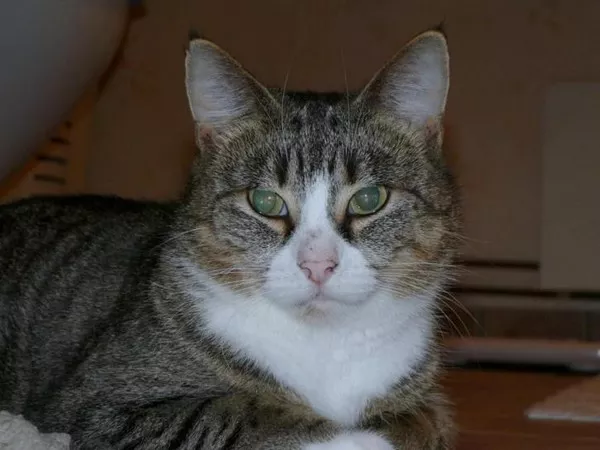Kittens are undeniably adorable, with their playful antics and soft fur capturing the hearts of many. However, the responsibility of caring for a kitten comes with its challenges, one of which is ensuring they receive the right amount of food. Overfeeding is a common concern among new cat owners, often stemming from a desire to provide the best for their feline companions. However, overfeeding can lead to serious health issues, including diarrhea. This essay explores the relationship between overfeeding kittens and the onset of diarrhea, examining the physiological, dietary, and behavioral aspects involved.
Understanding Kitten Nutrition
Nutritional Needs of Kittens
Kittens have unique nutritional requirements that differ significantly from adult cats. They require a diet rich in protein, fats, vitamins, and minerals to support their rapid growth and development. The Association of American Feed Control Officials (AAFCO) recommends that kitten food contains at least 30% protein and 9% fat on a dry matter basis. Additionally, kittens need higher levels of certain nutrients, such as calcium and phosphorus, to support bone development.
Feeding Guidelines
Most veterinarians recommend feeding kittens three to four small meals a day instead of one or two large meals. This approach helps to mimic their natural feeding behavior, as wild cats hunt multiple times a day. It also aids in digestion, as smaller meals are easier for a kitten’s developing digestive system to handle.
The Consequences of Overfeeding
Defining Overfeeding
Overfeeding occurs when a kitten consumes more food than their body requires for growth and energy. This can happen for various reasons, including:
Owner Misjudgment: Many owners may not be aware of how much food their kitten truly needs.
High-Calorie Diets: Some kitten foods are calorie-dense, and owners may inadvertently provide too much.
Behavioral Factors: Kittens may beg for food, leading owners to believe they need more than they actually do.
Physiological Effects of Overfeeding
When a kitten is overfed, several physiological changes can occur:
Weight Gain: Excess calories lead to weight gain, which can predispose kittens to obesity as they grow.
Digestive Disturbances: Overeating can overwhelm a kitten’s digestive system, leading to issues such as diarrhea, vomiting, and constipation.
Nutritional Imbalances: Consuming too much food can result in an imbalance of nutrients, further complicating a kitten’s health.
The Link Between Overfeeding and Diarrhea
How Overfeeding Causes Diarrhea
Diarrhea in kittens can be caused by various factors, but overfeeding is a significant contributor. Here’s how it occurs:
Digestive Overload: Kittens have small stomachs and a limited capacity to digest food. When they consume too much, their digestive systems can become overwhelmed, leading to diarrhea.
Rapid Food Passage: Overfeeding can cause food to move too quickly through the digestive tract. This rapid transit time does not allow for proper nutrient absorption, resulting in loose stools.
Dietary Changes: Introducing new foods or overfeeding with a specific type of food can disrupt the gut microbiome, leading to gastrointestinal upset.
Symptoms of Diarrhea
Recognizing the symptoms of diarrhea in kittens is crucial for timely intervention. Common signs include:
- Loose or watery stools
- Increased frequency of defecation
- Straining to defecate
- Presence of blood or mucus in the stool
- Signs of dehydration (e.g., lethargy, dry gums)
Identifying the Causes of Diarrhea
Differentiating Between Causes
While overfeeding is a common cause of diarrhea, it is essential to differentiate it from other potential causes, including:
Dietary Changes: Sudden changes in diet can lead to gastrointestinal upset.
Infections: Bacterial, viral, or parasitic infections can cause diarrhea.
Food Intolerances: Some kittens may be sensitive or allergic to specific ingredients in their food.
Stress: Environmental changes or stressors can also lead to digestive issues.
When to Seek Veterinary Care
If a kitten experiences diarrhea, it is essential to monitor their condition closely. If diarrhea persists for more than 24 hours, or if the kitten shows signs of dehydration or lethargy, it is crucial to seek veterinary care. A veterinarian can perform diagnostic tests to identify the underlying cause and recommend appropriate treatment.
Preventing Overfeeding and Diarrhea
Establishing a Feeding Routine
To prevent overfeeding, establishing a consistent feeding routine is vital. This includes:
Measuring Food Portions: Use a measuring cup to ensure that you are providing the correct amount of food based on your kitten’s age, weight, and activity level.
Choosing Quality Food: Select high-quality kitten food that meets AAFCO standards to ensure your kitten receives balanced nutrition without excess calories.
Avoiding Free Feeding: Instead of leaving food out all day, provide scheduled meals to control portion sizes and prevent overeating.
Monitoring Weight and Health
Regularly monitoring your kitten’s weight and overall health is essential. Kittens should gain weight steadily, but if they are gaining too much too quickly, it may indicate overfeeding.
Understanding Behavioral Cues
Learning to interpret your kitten’s behavior can help prevent overfeeding. Kittens may beg for food out of boredom or habit, not necessarily hunger. Engaging in play and providing enrichment can help reduce food-seeking behavior.
Conclusion
Overfeeding a kitten can lead to a host of health issues, with diarrhea being one of the most common consequences. Understanding the nutritional needs of kittens, establishing a proper feeding routine, and recognizing the signs of overfeeding can help prevent diarrhea and promote overall health. As responsible pet owners, it is essential to strike a balance between providing adequate nutrition and avoiding the pitfalls of overfeeding. By doing so, we can ensure that our kittens grow into healthy, happy adult cats, free from the discomfort and complications associated with digestive disturbances.
Related topic:



























